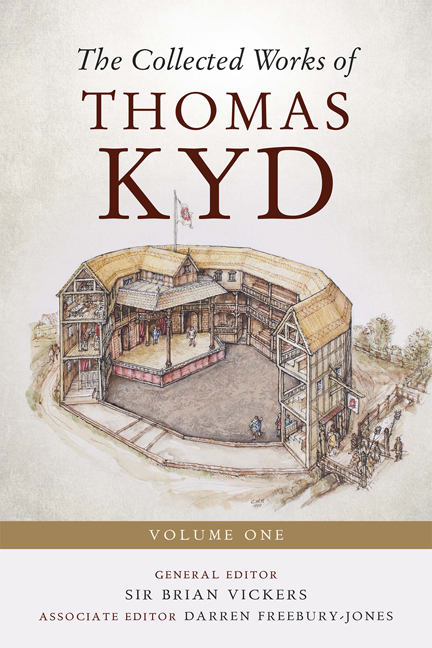King Leir
Published online by Cambridge University Press: 16 May 2024
Summary
It is difficult to imagine King Leir outside of the context of Shakespeare's King Lear, and for most of their critical history the plays have been inextricably linked. Grace Ioppolo argued recently, and with good reason, that King Leir ‘has not been properly evaluated on its own merit’ owing to the looming presence of Shakespeare's version. Yet the fifteen or so years that separate Leir and Lear is a very long time in the context of late Elizabethan and early Jacobean drama. Stage conventions underwent radical changes that make for very different plays, not just in terms of language, as one might expect when comparing any play to a work of Shakespeare, but also in terms of genre, characterization, and staging. More importantly, King Leir's qualities can be hidden by too much reference to Shakespeare's betterknown adaptation, and therefore this introduction will largely focus on the earlier play itself, including its innovations and potentials for modern interpretation by students, playgoers, and actors, without drowning by Shakespeare.
The play opens upon the death of the queen, with King Leir determined to divide his kingdom amongst his three daughters, as long as they marry as he sees fit. In keeping with contemporary warnings about the miseries of forced marriage, Leir's wise councillor, Perillus, argues against the decision: ‘Do not force love where fancy cannot dwell’ (1.73), while the scheming courtier, Scaliger, goes off to warn Gonorill and Ragan about Leir's intentions. Perillus will prove Leir's most loyal companion, remaining at his side for the remainder of the play. We meet the elder sisters in the next scene, where they express a profound, seemingly motiveless, hatred for Cordella, and plot to ‘flatter’ Leir, knowing that he wishes to marry them to men they fancy, while Cordella is allotted to the ‘Irish King’, whom she clearly does not wish to marry (2.79, 96). Once Cordella offers a moderate answer to the love test, ‘look what love the child doth owe the father, | The same to you I bear, my gracious lord’, Gonorill and Ragan pounce and magnify the sense of disrespect (3.80–1). In a rage, Leir decides to ‘dispossess myself ‘ in favour of the elder sisters, while disinheriting Cordella altogether (3.124).
- Type
- Chapter
- Information
- The Collected Works of Thomas Kyd , pp. 465 - 627Publisher: Boydell & BrewerPrint publication year: 2024

